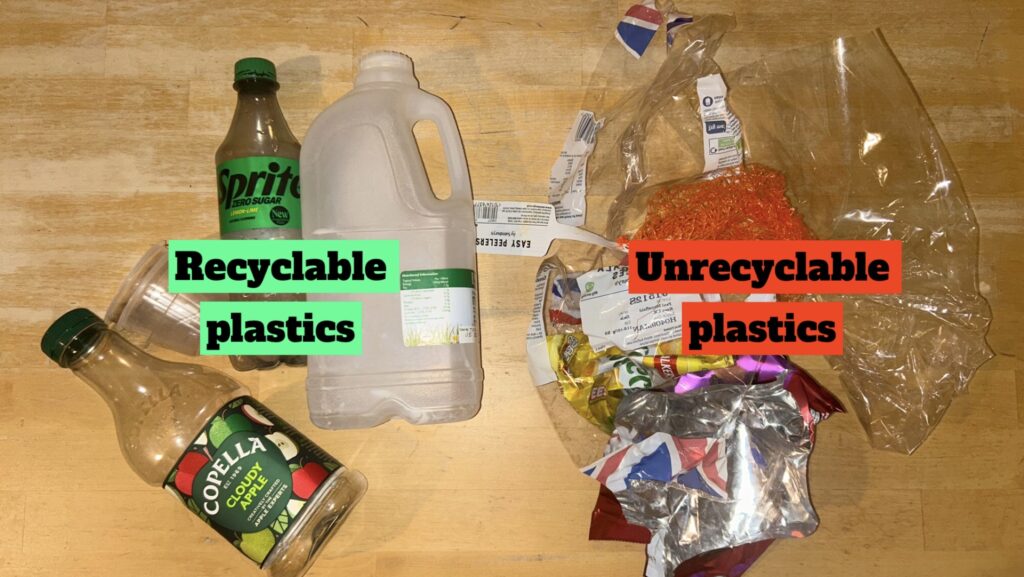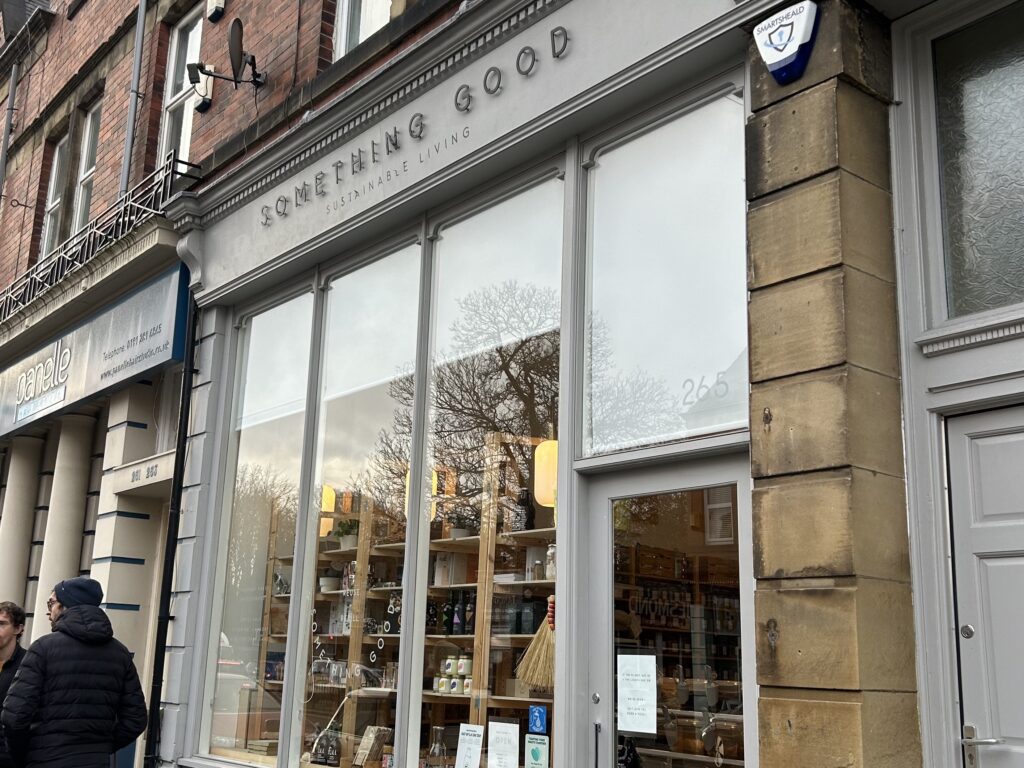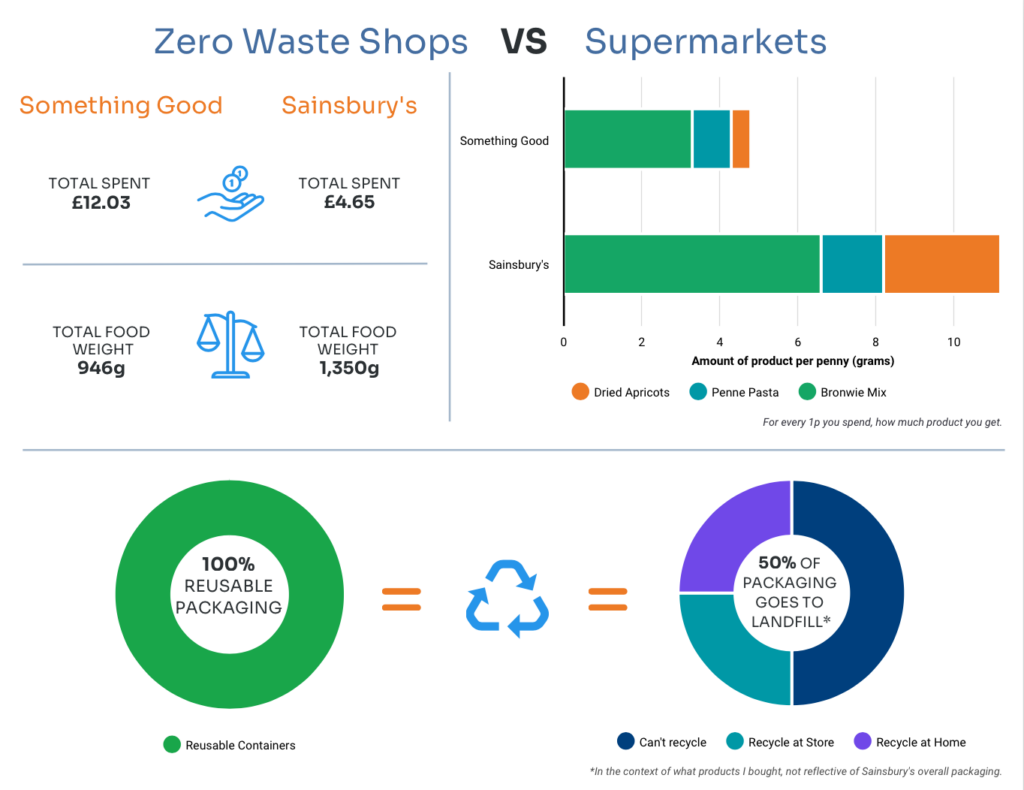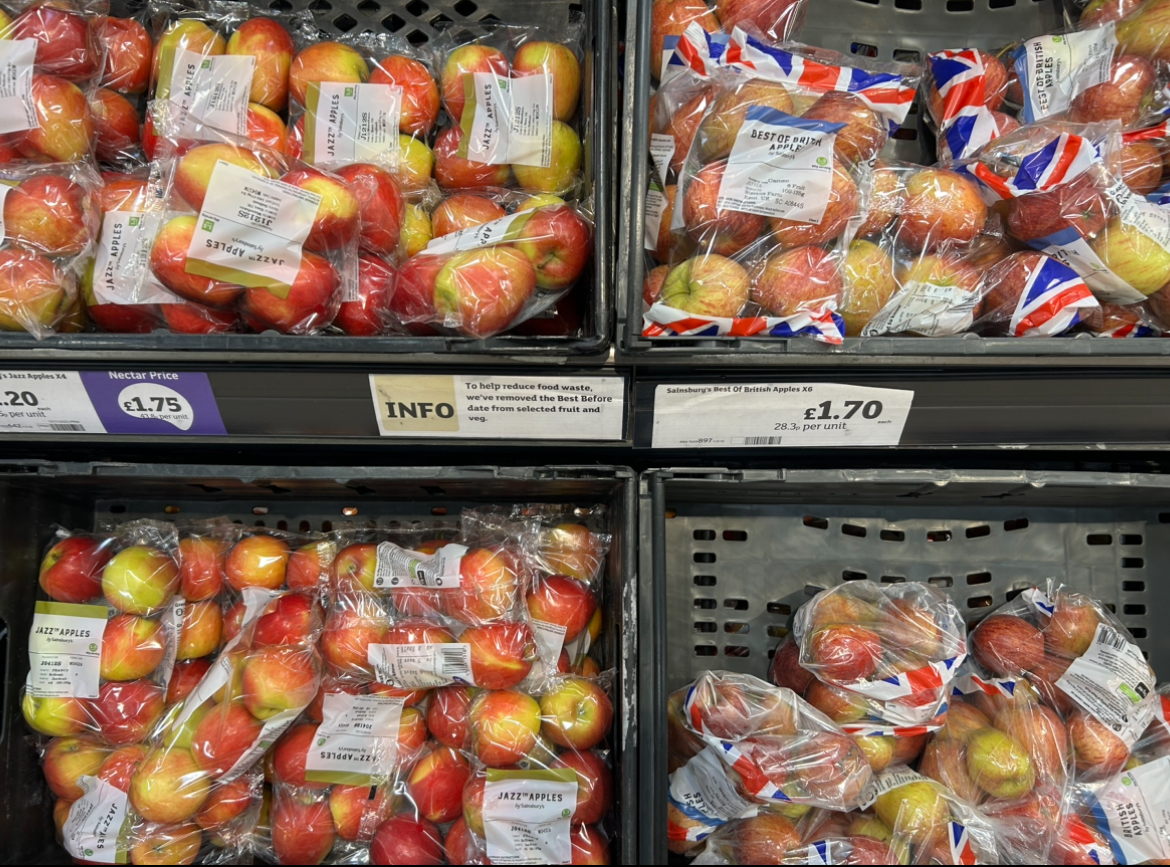I visited my local zero waste shop and supermarket to compare prices and packaging to see how easy and accessible green living really is.
In 2019, UK supermarkets sold nearly 900,000 tonnes of single-use plastic in their packaging and over 2 billion plastic bags to customers. This plastic footprint goes on to pollute the entire planet, from landfills to oceans.
Your average plastic bottle takes roughly 450 years to fragment. Never fully disappearing. That means every single plastic bottle you’ve ever used in your life, and the average person uses around 156 bottles a year, is still knocking about somewhere round the globe. And still will be, long after we’re both gone. Environmental scientists warn that by 2050, there will be more plastic in our oceans than fish.

To help combat these ever-increasing plastic waste levels, zero waste shops have cropped up all over the country. In these shops, you can refill reusable containers with your shopping; cutting out that pesky, plastic middle man you can’t avoid at supermarkets. This seems like the perfect solution, right? So why aren’t we all shopping zero waste?
Well compared to the supermarket grab, go and bin culture, these revolutionary shops have been criticised for being too expensive and requiring lots of time and effort.
In such a time-short hectic world, people seem to prioritise convenience over a greener, eco-friendly lifestyle. But the 30 second convenience of buying that plastic Nestle Pure Life water rather than filling up a reusable bottle, just adds to the demand, production and inevitable pollution of single-use plastic. Zero waste shops and refill stations prove there is hope that we can change away from our toxic relationship to plastic.

In Newcastle, there are only two zero waste shops: Something Good in Jesmond, and Nil Living in the Grainger Market. You can also find a couple more scattered around North Tyneside. The first of these progressive shops was Nil Living, which began its trade in early 2019. Meaning up until about 5 years ago, zero waste food shopping in Newcastle wasn’t even an option.
I went to my local zero waste shop, Something Good, and my local supermarket, Sainsbury’s, comparing the same products on price and packaging to really see how accessible shopping green is.
From my findings it’s clear that, you definitely don’t get the same bang for your buck wherever you go, with Something Good being considerably more expensive. Also time wise it took me a lot longer in Something Good than Sainsbury’s to find and buy all my items. Although I can imagine once I got used to the process of scanning and weighing, the experience would become smoother. But still the impact on the environment is undeniable. The plastic waste from Sainsbury’s, something you don’t think twice about when sticking in the bin, will be around for at least another 450 years.

Lauren, the founder of Something Good, said: “Our little shop brings together all of the products we use ourselves to make our everyday routine a little less wasteful, and a little more sustainable” and continued “We started SomethingGood as a call to change, as a place where people could come and get involved in a new and much-needed way of shopping for daily essentials, as well as the occasional and considered nice to have purchases. First and foremost, we saw a desperate need to offer something else, something better, in our current hyper-convenience culture. Our core purpose, to choose well, buy less and to reduce plastic and packaging waste”.
Sainsbury’s does have a Better for the Planet environmental agenda, where they outline their aims on helping tackle climate change. They have a commitment to reduce their plastic packaging by 50% til 2025 and by 2022, they had reached 32.3% of this. Their five point plan for plastic reduction even has a promise to create refill/reuse options for customers, although we haven’t seen this in stores yet.
Sainsbury’s further released the statement: “We are aware our reduction commitment is ambitious and meeting this commitment will pose significant challenges that will require transformational thinking across the industry and whilst we will endeavour to change as much as we possibly can, we simply cannot make these changes alone.”
Sustainability has to be more sustainable. As a student who is plastic-conscious, I’d love to be able to shop more eco-friendly, and I do when I can, but the price tag of zero waste shops is simply out of my reach. The price of being a small, independent business in the cost of living crisis having to bulk buy produce instead of individually packaged items will naturally make zero waste shops more expensive. These shops are paving the way, but we need more shops to follow in their footsteps. Greener lifestyles need to be accessible for the masses, not just those with the wallet and time to suit.
So I guess it’s not really zero waste shops versus supermarkets, it’s how can zero waste shops help and inspire supermarkets to change their current dependance on single-use plastic. So everyone can do their bit and be more sustainable for our planet.

